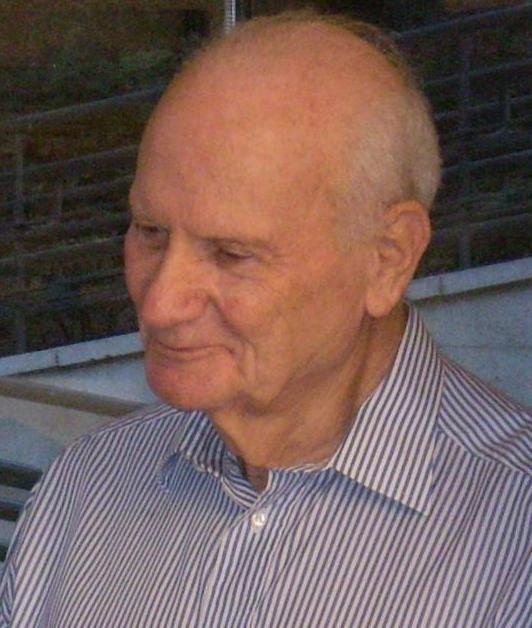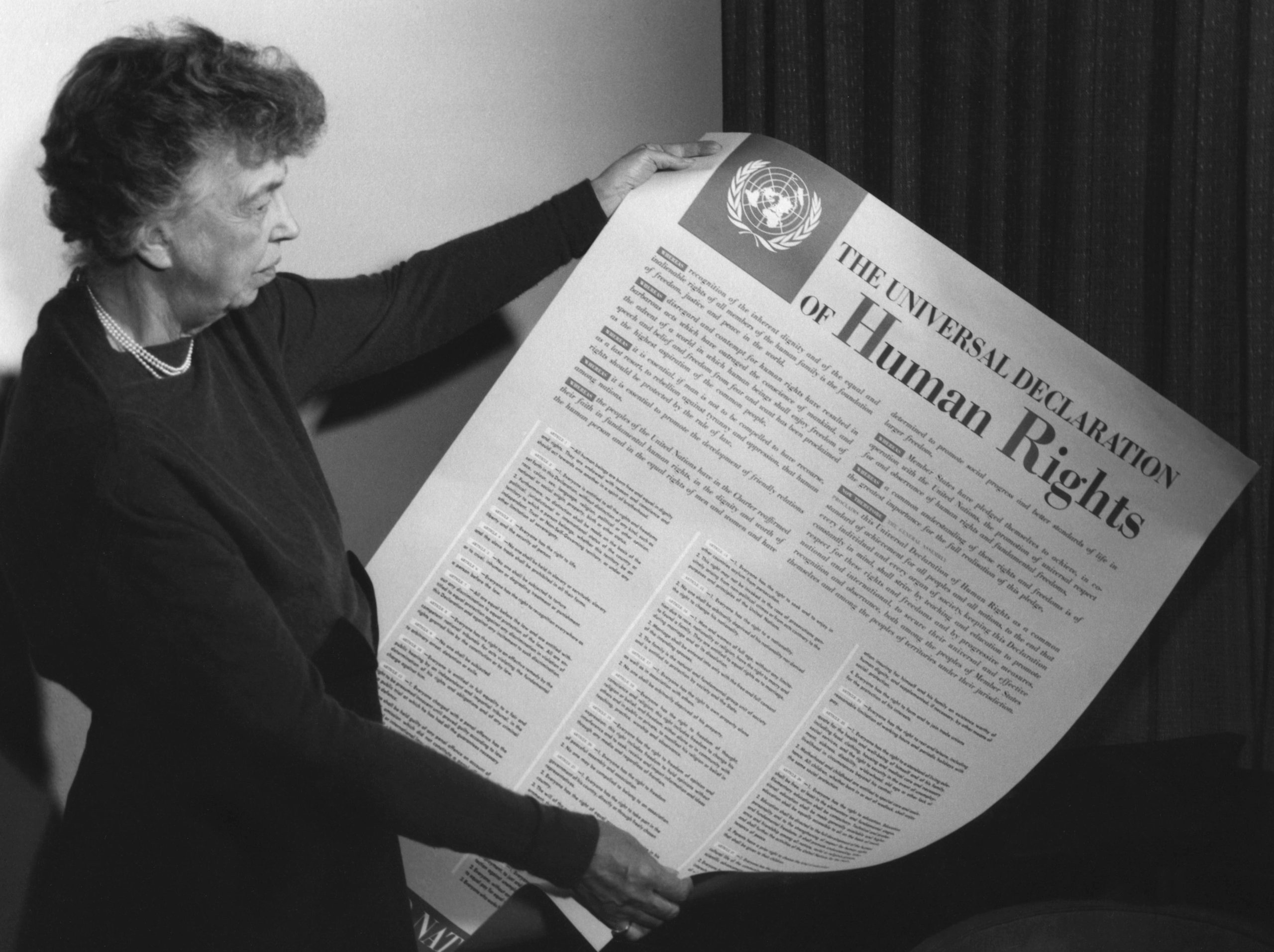Meir Shamgar has been eulogized as an ethical hero. But Lawrence Davidson says he threatened civilized legal standards both at home and in the international arena.
By Lawrence Davidson
TothePointAnalysis.com
On Oct. 19, 2019, Meir Shamgar died. He was 94 years old. Shamgar is not exactly a household name here in the West, but he was renowned in Israel. He was given a state funeral that was attended by most of Israel’s top Zionist leaders.

Meir Shamgar, chief justice of the Israeli Supreme Court from 1983 to 1995, in 2007. (Wikimedia Commons)
Prime Minister Benjamin Netanyahu eulogized Shamgar as the man responsible for “strengthening the foundational principles of justice and the law, and guaranteeing individual and national freedoms.” Others described him as a “great man of towering intellect and deeply held ethical values.”
Shamgar reached this status and accomplished these tasks in his roles as Israel’s military advocate general, attorney general, supreme court member and then finally as the president of Israel’s supreme court. He was obviously a capable legal mind with real administrative talents. Yet, as he went about shaping Israel’s liberal-for-Jews national legal environment, he simultaneously undermined international law and human rights for non-Jews. He therefore can be seen as threatening civilized legal standards both at home and in the international arena.
Denier of Human Rights
Here is how Michael Sfard, an Israeli attorney who specializes in international and human rights law, describes Shamgar’s legal treatment of Palestinians in the occupied territories: “As a judge, he handed down rulings that legalized almost every draconian measure taken by the defense establishment to crush Palestinian political and military organizations, and to establish Israeli control over the occupied people and their land for generations. Demolition of suspects’ houses (rendering their families homeless); wholesale use of administrative detentions against Palestinian activists; expropriation of lands and the establishment of settlements; undemocratic appointments of mayors; and the imposition of curfews and taxes — Shamgar sanctioned them all.”
Sfard is accurate in this description. However, he also thinks that Shamgar personifies a “paradox” that lies at the heart of Zionism — Israel’s national ideology. He tells us that this is “the paradox of a movement that is based on the moral ideal that every nation has the right to political freedom. … And yet, has denied those same freedoms to millions of people who belong to another nation.”
I am afraid Sfard has this part wrong, at least as far as the Zionist belief in a “moral ideal” that every nation has a right to freedom. There is no historical evidence that the Zionist movement ever asserted such an ideal except as a brief bit of useful post-World War I propaganda.
Quite to the contrary, Zionist nationalism was pursued as an extension of European colonialism. Early on Zionist leaders hitched their national ambitions (via the Balfour Declaration) to British imperialism — which, under no circumstances, espoused the national rights of the peoples they ruled. Thus, the Zionists turned on the British when they no longer needed their patronage, in order to force them out of Palestine. Just so, according to the latest biography of
(Tom Segev’s “A State At Any Cost”), modern Israel’s founding father always understood the movement of European Jews into Palestine as one of “conquest.”
Thus, it is much more accurate to say that Zionists reserved, and still reserve, the ideal of national freedom in Palestine solely to themselves. And they do so without the “dissonance” Sfard claims is engendered by a simultaneous belief in a universal right of national freedom. Indeed, any such ideal that might support rights of any kind for the Palestinians on an equal basis with Israeli Jews is anathema to most Zionists. It is within this context that Meir Shamgar could at once be the nation’s legal hero and simultaneously deny the application of universal human rights and international law in Israel’s “occupied territories.”
The Broader Lesson

Eleanor Roosevelt holding poster of the Universal Declaration of Human Rights, Lake Success, N. Y., November 1949. (FDR Presidential Library & Museum, CC BY 2.0, Wikimedia Commons)
We can understand this disparity more broadly once we realize that ethics, or value-systems generally, are locally generated. This means that, while in principle, each value-system might have concepts such as fairness, honesty, humaneness, that have universal character, they have traditionally, that is historically, been put into practice in a more narrow way for the benefit of particular in-groups.
Over time these in-groups have gotten larger until today the largest of them is now the nation state. However, the nation state has also been a source of world wars and large-scale atrocities. After World War II, and the experience of a number of genocides, efforts were made to establish a set of trans-national values laid out in international law and in the United Nations Universal Declaration of Human Rights.
It was hoped that nation states could be persuaded (by the memory of the horrors of World War II, if nothing else) to adhere to humane international laws that transcended national in-groups.
Despite the historically proven fact that an in-group approach to ethics has encouraged racism and other forms of bigotry as well as horrific war, there still continues a struggle between those who would apply ethical standards universally and those who would hold to the traditional in-group exceptionalism. Meir Shamgar and the Zionists followed this latter approach.
The road they have chosen has certainly generated exclusive ethics and values reserved for just their in-group. Inevitably, this has resulted in a highly discriminatory Israeli environment which many (including some Israelis) see as creating an apartheid society. Apartheid is a form of racism recognized under international law as a crime against humanity.
The cost here is not just the injustice done to the Palestinians. There is also a serious undermining of both international law and the moral integrity of the Jewish people. One wonders if Meir Shamgar ever thought of his legal rulings and administrative reforms in this way? Or, for him, was there nothing beyond a narrow version of the ethnic nation state, where the rule of law was a sole possession of a sub-group of citizens. Of course, great men of “towering intellect and deeply held ethical values” should not think and act in such exclusionary ways. However, those who would readily sacrifice the well-being of millions do.
Lawrence Davidson is professor of history emeritus at West Chester University in Pennsylvania. He has been publishing his analyses of topics in U.S. domestic and foreign policy, international and humanitarian law and Israel/Zionist practices and policies since 2010.
This article is from his site, TothePointAnalysis.com.
The views expressed are solely those of the author and may or may not reflect those of Consortium News.
Before commenting please read Robert Parry’s Comment Policy. Allegations unsupported by facts, gross or misleading factual errors and ad hominem attacks, and abusive or rude language toward other commenters or our writers will not be published. If your comment does not immediately appear, please be patient as it is manually reviewed. For security reasons, please refrain from inserting links in your comments, which should not be longer than 300 words.

What Mister Lawrence rings true:
“The cost here is not just the injustice done to the Palestinians. There is also a serious undermining of both international law and the moral integrity of the Jewish people. One wonders if Meir Shamgar ever thought of his legal rulings and administrative reforms in this way?”
“..the moral integrity of the Jewish people..” And our own nation by its willingness to go along with whatever Israel does.
I have always enjoyed Lawrence Davidson’s, which mostly appear on this site. This article is no exception.
However, I believe that a clarification is needed for the causes of world wars by nation states. It is of course true that it is nation states in the modern sense that now initiate wars, many of choice.
However, the complexities that initiated WWI for example could have been just as easily the result of merely complex societies coming into conflict with each other as they did in antiquity.
As it regards WWII, the diplomatic histories do not support Mr. Davidson’s view completely. In this respect, it is increasingly being found that a small handful of leaders started a world wide conflagration that was totally unnecessary. To this end we have FDR, Churchill, and Josef Beck of Poland who sought and eventually succeeded in getting a war that they all wanted… to a person.
Polish leader Pilsudski was a far more pragmatic person than his successor, Josef Beck, who started making claims about Poland’s ability to defeat Germany as early as 1936 out of pure bravado and the desire to destroy the German state.
Meir Shamgar followed the zionist script very closely .He might have been involved in the upper echelons of the legal system but there is clearly a conflict between the zionist political system and the declaration of human rights as he interpreted it.
As they say ,you can put lipstick on a pig but it is still a pig.
“…those who would hold to the traditional in-group exceptionalism.”
In other words, those who don’t believe in due process and equal protection. Making them arrogant supremacists and exploiters.